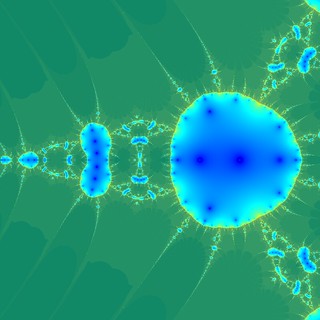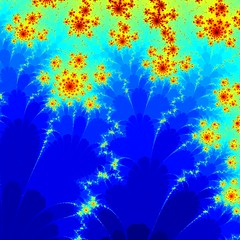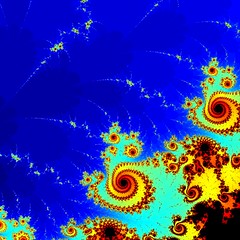Another of my favourite functions if the Gamma function, , the continuous generalization of the factorial. While it grows rapidly for positive reals, it has fun poles for the negative integers and is generally complex. What happens when you iterate it?
First I started by just applying it to different starting points, . The result is a nice fractal, with some domains approaching 1, and others running off to infinity.

Here I color points that go to infinity in green shades on the number of iterations before they become very large, and the points approaching 1 by . Zooming in a bit more reveals neat self-similar patterns with alternating “beans”:


In the outside regions we have thin tendrils stretching towards infinity. These are familiar to anybody who has been iterating exponentials or trigonometric functions: the combination of oscillation and (super)exponential growth leads to the pattern.
OK,that was a Julia set (different starting points, same formula). What about a counterpart to the Mandelbrot set? I looked at where c is the control parameter. I start with
and iterate:

Zooming in shows the same kind of motif copies of Julia sets as we see in the quadratic Mandelbrot set:



In fact, zooming in as above in the counterpart to the “seahorse valley” shows a remarkable similarity.